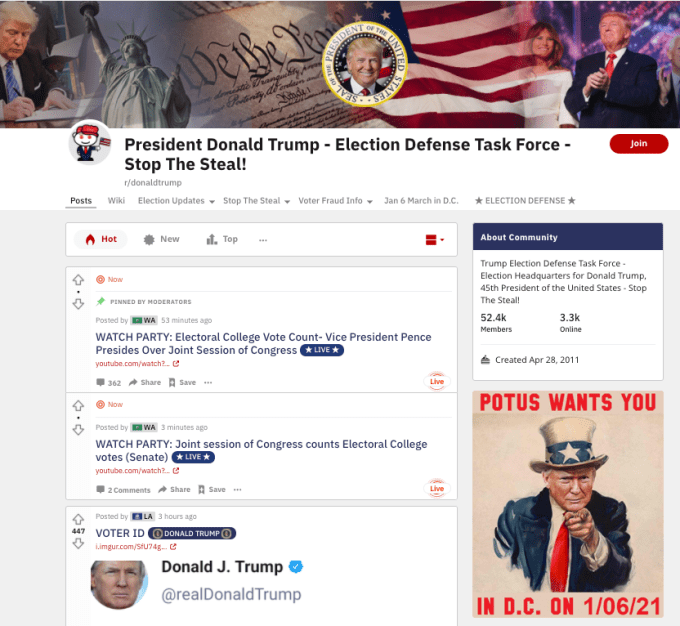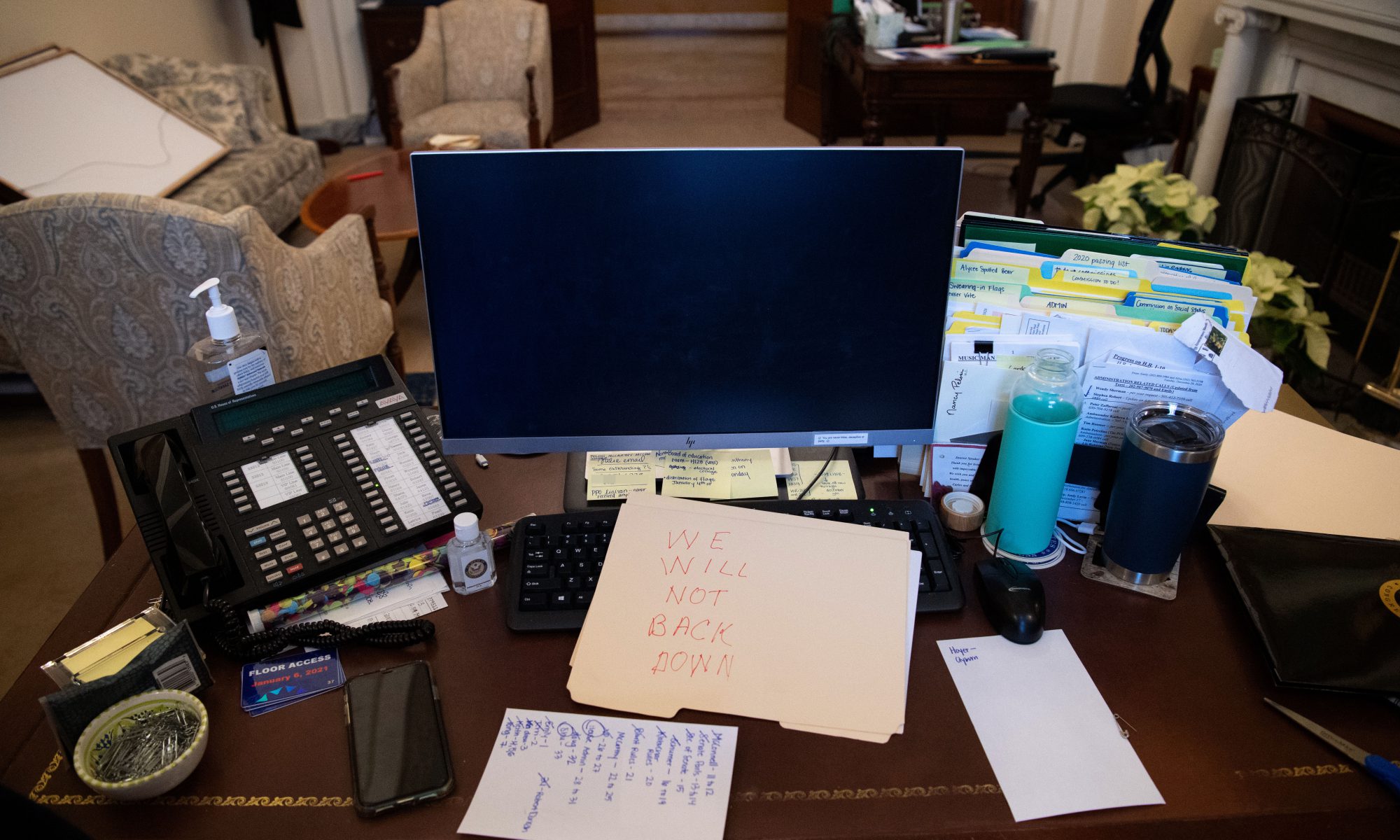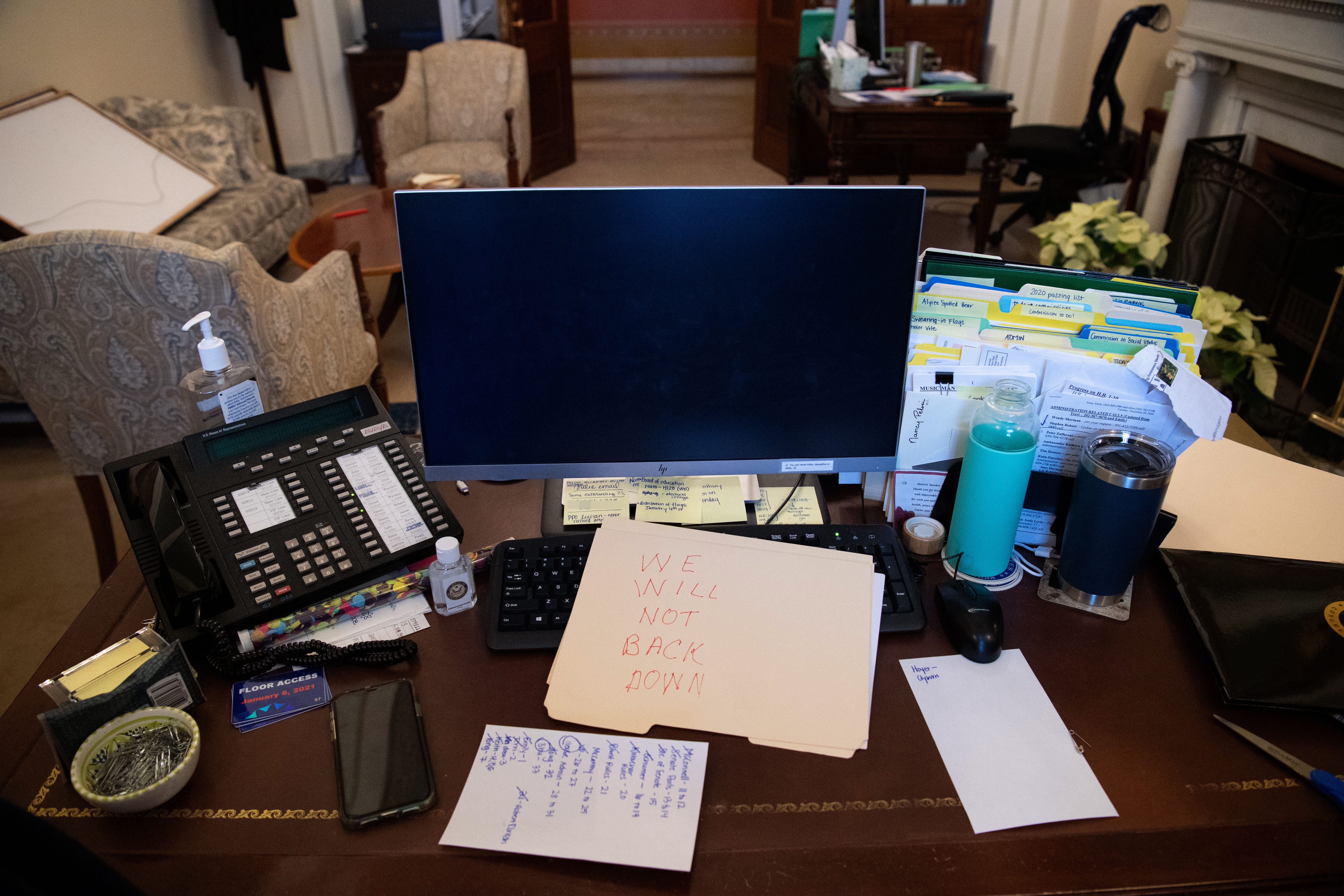Welcome back to This Week in Apps, the weekly TechCrunch series that recaps the latest in mobile OS news, mobile applications and the overall app economy.
The app industry is as hot as ever, with a record 204 billion downloads and $120 billion in global consumer spend in 2019. Consumer spend also hit a record $112 billion across iOS and Android alone.
Not including third-party Chinese app stores, iOS and Android users downloaded 130 billion apps in 2020. Due to COVID-19, time spent in apps jumped 25% year-over-year on Android.
Apps aren’t just a way to pass idle hours — they’re also a big business. In 2019, mobile-first companies had a $544 billion valuation, 6.5x higher than those without a mobile focus.
Top Stories
Social apps boot Trump following Capitol riot
To varying degrees, social apps had to quickly figure out where to draw the line on allowing Trump to continue to use their platforms this week, after his false claims about a rigged election led Trump supporters to storm the U.S. Capitol on Wednesday, destroying property, stealing at least one computer, potentially gaining access to other unlocked computers and causing chaos that led to five deaths, including a Capitol Police officer who has now died of injuries sustained on duty.
Social platforms, however, have been complicit in allowing these dangerous and radicalized groups to emerge in the first place. Facebook, for example, allowed StoptheSteal and Secession groups to organize using its platform. It also waited years to sweep the platform of QAnon groups, and then didn’t even finish the job — these disinformation networks remain live on the platform today. But even smaller gestures aimed at cleaning up the mess of a platform that prioritized ad dollars over safety led some Trump supporters to flee to other social media networks used by the far-right, such as Gab and Parler. There, they could post even more violent rhetoric without repercussions.
@thegoodliarsOur view of the terrorists storming the Capitol. ##trumplost ##dc ##washington ##trumpisaloser ##coup♬ original sound – The Good Liars
Following the riot, Facebook CEO Mark Zuckerberg announced Trump would be banned from both Facebook and Instagram for two weeks. Twitter initially locked Trump’s account on Wednesday, then allowed him to return after deleting a few tweets, noting that another violation would result in permanent suspension. On Friday, it permanently banned Trump, and his other close associates.
Both also removed Trump’s video where he showed support for rioters, telling them to go home but also “we love you, you’re very special.”
TikTok, though obviously not used by Trump, took down re-shares of Trump’s video, but allowed counter speech against it and some posts by news organizations. And it proactively blocked the hashtags used by rioters. Snapchat locked Trump’s account as well, and Twitch disabled him until the end of his term.
New social apps and startups with social features will often mimic the general approaches of the large platforms as they craft their own content policies. But human rights organizations argue that what’s being done is not enough.
Said activist group Color of Change this week, “Mark Zuckerberg does not deserve applause for taking action at the 11th hour, after years of damage has already been done. Facebook is unquestionably complicit in the violent insurrection on Capitol Hill yesterday, and in the erosion of our democracy that’s continued to unfold in plain sight.”
The group is urging for Trump’s permanent ban from Facebook and for the network to “take action against his enablers and allies who continue to use the platform to incite violence and spread dangerous misinformation.”
App Stores take action on Parler
On Friday, Buzzfeed News reported Parler had received a letter from Apple that said they had 24 hours to come up with a moderation plan for the app, otherwise it would be banned from the App Store. Google Play, however, more quickly banned the app on Friday until the company could commit to a moderation and enforcement policy to handle objectionable content on its network.
Google’s statement reads as follows:
“In order to protect user safety on Google Play, our longstanding policies require that apps displaying user-generated content have moderation policies and enforcement that removes egregious content like posts that incite violence. All developers agree to these terms and we have reminded Parler of this clear policy in recent months. We’re aware of continued posting in the Parler app that seeks to incite ongoing violence in the US. We recognize that there can be reasonable debate about content policies and that it can be difficult for apps to immediately remove all violative content, but for us to distribute an app through Google Play, we do require that apps implement robust moderation for egregious content. In light of this ongoing and urgent public safety threat, we are suspending the app’s listings from the Play Store until it addresses these issues.“
Parler had been one of the places where Trump supporters and other extremists to organized their plans to storm the Capitol this week as well as plan future attacks. Posts on Parler, which has a looser moderation policy compared with Twitter, often call for people’s deaths and even for Civil War.
Several high-profile conservatives, including members of Trump’s family, had been participating on Parler, following the increased enforcement of various polices against election misinformation and false claims about COVID-19, among other things, on mainstream social platforms.
It is not unusual for Apple and Google to take action against apps with harmful content, though one has to wonder why it took a deadly insurrection aimed at toppling U.S. democratic processes for them to care.
U.S. bans transactions with Chinese payments apps
Ahead of the violence at the Capitol this week, the Trump administration continued its crackdown on Chinese mobile applications. Via an executive order signed on Tuesday, the U.S. banned transactions with eight Chinese mobile apps, including Ant Group’s Alipay mobile payment app, Reuters first reported.
Others named in the order include CamScanner, SHAREit, Tencent QQ, VMate (published by Alibaba Group subsidiary UCWeb) and Beijing Kingsoft Office Software’s WPS Office.
The move is meant to cut off China’s access to U.S. user data, including, per the order, the ability for China to “track the locations of federal employees and contractors” and “build dossiers of personal information.”
The administration had previously banned TikTok and WeChat, but U.S. courts blocked the orders from going into effect.
FTC settles with Tapjoy over deceptive practices, but lays blame at feet of app store gatekeepers

Image Credits: Tapjoy
Mobile advertising company Tapjoy settled with the U.S. Federal Trade Commission over allegations that it was misleading consumers about the in-app rewards they could earn in mobile games. The FTC said Tapjoy deceived consumers who participated in various activities — like purchasing a product, signing up for a free trial, providing their personal information like an email address or completing a survey — in exchange for in-game virtual currency. But when it was time to pay up, Tapjoy’s partners didn’t deliver.
The order will now require Tapjoy to follow up on complaints and monitor to ensure that offers are delivered, or face further fines of up to $43,280 per each violation.
Tapjoy serves as a middleman between developers, consumers and advertisers, and is one of many “offerwall”-based mobile ad networks available today.
Mobile game developers integrate Tapjoy’s technology to display ads — aka “offers” — to their customers, in order to earn payments for their users’ activity. When the consumer completes the offer by taking whatever action was required, they’re supposed to earn in-game coins or other virtual currency. The app developers then earn a percentage of that ad revenue. But the FTC said that would often not happen, and Tapjoy ignored hundreds of thousands of consumer complaints.
Though Tapjoy was the business being held accountable in the FTC’s ruling, the Commissioners harshly scolded the “rent-seeking” app store business model for allowing networks like Tapjoy to rise in the first place. Using language that strongly hinted that regulation of the app stores was on the way, the Commissioners scolded the app stores’ “vast power to impose taxes and regulations on the mobile gaming industry.”
“This market structure also has cascading effects on gamers and consumers,” the ruling stated. “Under heavy taxation by Apple and Google, developers have been forced to adopt alternative monetization models that rely on surveillance, manipulation, and other harmful practices,” it said.
Apple is being given a lot of credit in recent weeks for its privacy push, with the launch of its so-called app store “nutrition labels” that help to better highlight the bad actors in the mobile app market. But some of the recent reporting neglects to explain why these alternative business models rose in the first place or detail how Apple will financially benefit from the shift to subscriptions that will result from the mobile ad clampdown. It’s also rarely noted that Apple itself serves behavioral advertising within its own apps that is based on the user data it collects from across its catalog of first-party apps and services. That’s not to say that Apple isn’t doing a service with its privacy push, but it’s a complex matter. This isn’t sports; you don’t have to pick one side or the other.
The FTC then not-too-subtly warned Apple and Google that it “will need to use all of its tools — competition, consumer protection, and data protection — to combat middlemen mischief, including by the largest gaming gatekeepers.”
Weekly News
Platforms: Apple & Google
- Google says it will add privacy labels to its app either this week or the next, following a report that claimed it hadn’t updated its app since Apple’s new labeling requirements.
- iOS 14.4 beta indicates guided audio walking workouts are on the way to Apple Watch.
Services
- Quibi returns. Okay, not exactly. Instead, the content catalog from the deceased mobile streaming app has been bought by Roku, which will stream it for free in its The Roku Channel this year, including The Roku Channel app.
Gaming
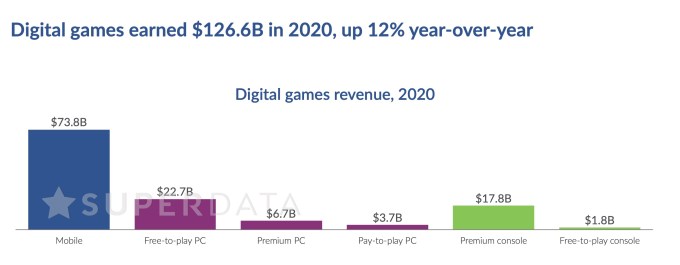
- Mobile games accounted for 58% of the total gaming market in 2020, up 10% year-over-year, according to SuperData’s annual report. They also accounted for the majority of the revenue, at $73.8 billion, compared with $33.1 billion for PC games and $19.7 billion for console games. Mobile games were also eight out of 10 of the top free-to-play titles, led by Honor of Kings.
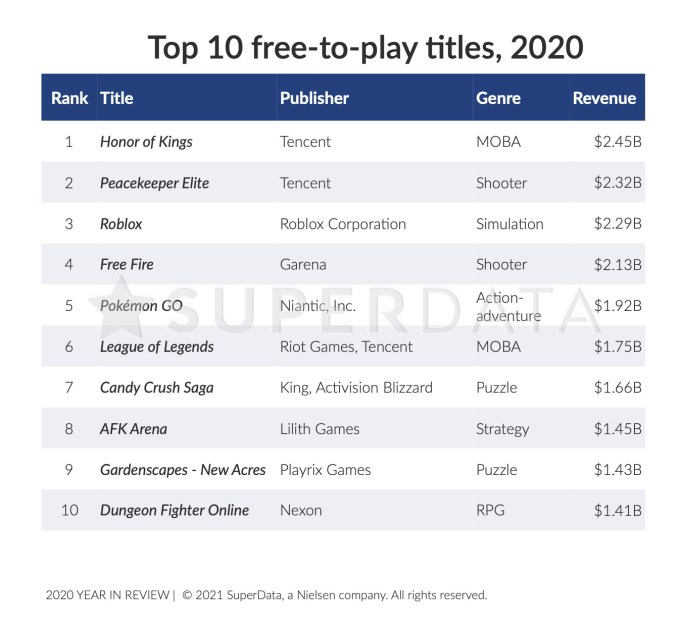
Image Credits: SuperData
Augmented Reality
- Tile to take on Apple’s forthcoming AirTags with a new tracker powered by ultra-wideband tech and will add AR-finding capabilities to its mobile app.
- TikTok launches its first AR effect to leverage the LiDAR Scanner in iPhone 12 Pro and Pro Max. The effect arrived for New Year’s and involves a dropping ball, similar to the one in Times Square, that explodes with confetti. Thanks to the LiDAR Scanner’s tech, the confetti can fall on the furniture in the room much as it would in real life.
Social & Photos
- WhatsApp is alerting users they have to agree to the new privacy policy by February 8, or won’t be able to use the app. The agreement requires users to share their data with Facebook — a move that’s led to a boost in downloads for private messaging app Signal.
- WhatsApp is working on multi-device support, according to references found in its 2.21.1.1 beta on Android.
- Facebook reminds businesses it will have to comply with App Tracking Transparency in iOS 14, according to a recent email it sent them. The email states the change will hurt “the industry and the ability for businesses of all sizes to market themselves efficiently.”
Health & Fitness
- Singapore confirmed its police can obtain COVID-19 tracing data to aid in criminal investigations via the TraceTogether app, used by more than 4.2 million residents.
Deadpool
- Alibaba shuts down 12-year-old music streaming app Xiami, acquired in 2013.
- Twitter to shut down podcast app Breaker following acquisition.
- Microsoft will shut down Minecraft Earth AR game in June, due to pandemic.
- BBVA to shut down neobank Simple, acquired in 2014. Users to be transferred to BBVA USA, which is merging with PNC.
Trends
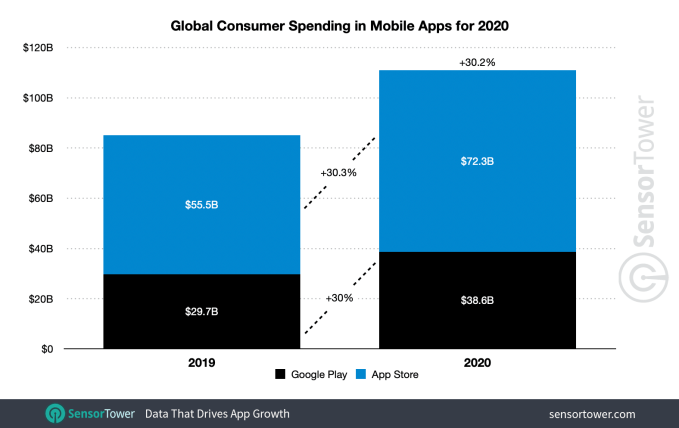
- Global mobile app spending reached nearly $111 billion in 2020, up 30.2% year-over-year, according to Sensor Tower. The App Store accounted for the majority of the spending at $72.3 billion, up 30.3% from $55.5 billion in 2019.
- Outside of games, Entertainment apps saw the most user spending worldwide in 2020, with $5.3 billion.
- First-time installs set a new record in 2020, with 143 billion installs across the App Store and Google Play combined.
- European mobile app spending grew 31% in 2020 to reach $14.8 billion, also according to Sensor Tower, representing a 31% year-over-year increase. The App Store drove the majority of the spending at $8 billion.
- Apptopia pulled data to create charts of 2020’s top downloaded apps across 20 different categories, both for U.S. and global apps. It also released top grossing charts for apps, games and “health & fitness” apps.
- CNBC estimates App Store gross revenue was over $64 billion in 2020. The estimate uses the figures Apple released on Wednesday about money paid to developers to back out roughly how much revenue the App Store made.
- Apple said its customers spent $1.8 billion during the week of Christmas Eve through New Year’s Day. App Store customers also set a new single-day spending record on New Year’s Day by more than $540 million.
- New CIRP data says the iPhone 12 models accounted for 76% of new iPhone sales from October-November 2020. The iPhone 12 mini only accounted for 6% of sales, however.
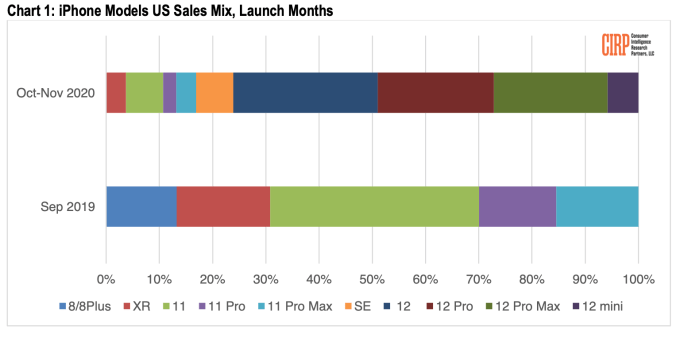
Image Credits: CIRP
Funding and M&A
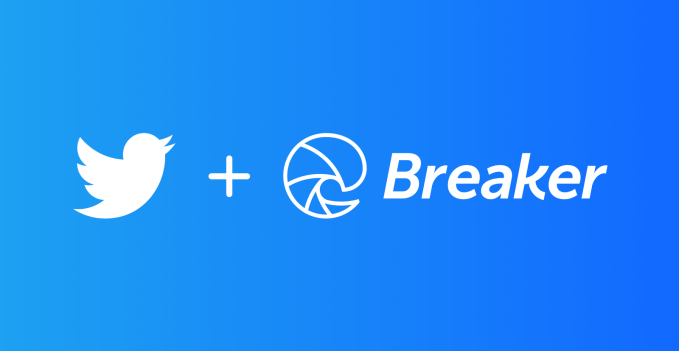
Image Credits: Breaker/Twitter
- Twitter acquires social podcasting app Breaker and acqui-hires creative agency Ueno to help it design new products, including Twitter Spaces.
- Cross-platform gaming company Roblox raises $520 million in a round led by Altimeter Capital and Dragoneer Investment Group ahead of its planned IPO. The new round values the business at $29.5 billion.
- Perfect Corp. raises $50 million Series C led by Goldman Sachs. The company develops the virtual beauty app YouCam Makeup app along with other AR makeup products, including those now embedded in Google Search.
- Local news app News Break raises $115 million in a round led by Francisco Partners. IDG also participated. The Mountain View-based company has roots in China, where founder Jeff Zheng previously led Yahoo Labs in Beijing, and has team members in Shanghai. But the majority are in the U.S.
- Quantum Metric raises $200 million for its platform that helps companies improve their website and apps with real-time feedback from end users. It captures data at the session level, which can then be played back to see how customers interacted with the site or app.
- (IPO) Poshmark plans to price its IPO between $35 and $39 per share, potentially valuing the business at $3 billion.
- Indonesian robo-advisor app Bibit raises $30 million in round led by Sequoia Capital India.
- AR gaming company Niantic acquires competitive gaming platform Mayhem for an undisclosed price. Mayhem had participated in YC’s winter 2018 batch before raising $5.7 million for its league and tournament organization platform.
- Fortnite maker Epic Games acquires Rad Game Tools, the maker of game development tools. The companies had worked together, as Epic had used Rad Game Tools’ compression tech to speed the load time for Fortnite.
- Indian social network ShareChat said to be raising funds from Google and Snap.
Downloads
Overviewer
New app Overviewer, reviewed here by 9to5Mac, turns an iOS device into a document camera for sharing content on video conferencing apps, like Zoom. The app makes for a good companion for teachers doing virtual learning as well as businesses. The app was created by Dark Noise app developer Charlie Chapman.
Textcraft
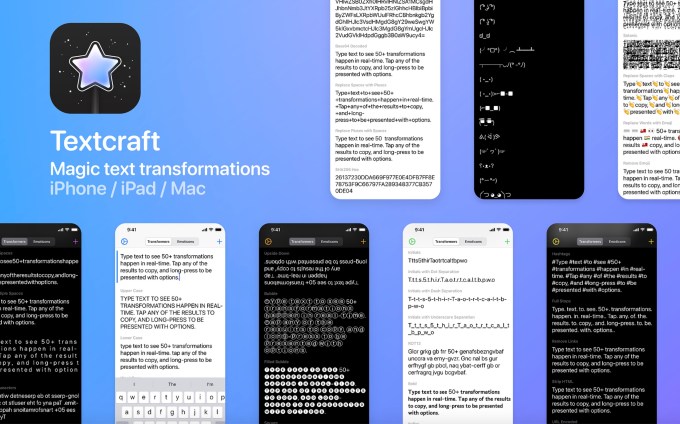
Image Credits: TextCraft
Want an easier way to insert the clapping hands emoji into your online rants, type text as bubbled letters, type In aLtErNaTe cAsE, in hashtags, in superscript or anything else? The new Textcraft app can help. The app allows you to type in the text then copy and paste or share any one of its over 50 text transformations. The app is well-designed with support for dark mode, drag-and-drop on iPad, and other macOS design guidelines in mind when using it across platforms.
According to a tween who reviewed the app for me: “This is cool. I want it.” They then ignored me as they played with it. I think that’s a good sign. (Paid download of $6.99 on iOS, iPad and Mac).
Discovery+
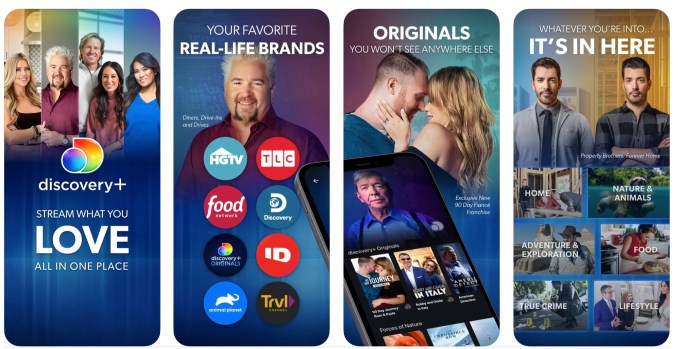
Image Credits: Discovery
If you’ve binged it all during the pandemic, there’s a new option for you. Discovery+ launched this week, bringing Discovery’s networks — HGTV, Food Network, TLC, ID, OWN, Travel Channel, Discovery Channel and Animal Planet — to a $5 per month subscription video on demand service. (Or $7 if you don’t want ads.)
The app also includes some non-Discovery content, like nature documentaries from the BBC and programming from A&E, The History Channel and Lifetime.
If home renovation, travel and reality are your escapist favs, this could be the app for you.
Wellnest
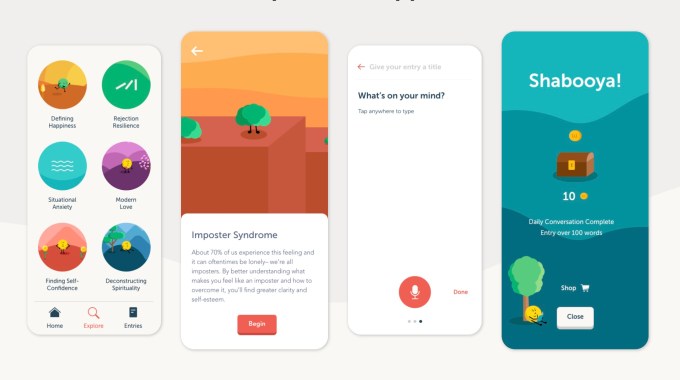
Image Credits: Wellnest
It’s been a stressful week. Maybe it’s time for some self-care? Guided journaling app Wellnest is helping users prioritize their mental health using game design techniques. The app offers deep dive question sets, daily prompts, mood check-in, speech to text, insights and more, wrapped up in a colorful and simple package. The app is a free download, then $24 per year or $5 per month for full access.
Source: Tech Crunch



